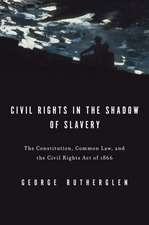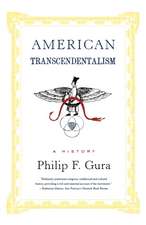The Repeal of Reticence: A History of America's Cultural and Legal Struggles Over Free Speech, Obscenity, Sexual Liberation, and Modern Art
Autor Rochelle Gursteinen Limba Engleză Paperback – 31 aug 1998
Preț: 156.52 lei
Nou
Puncte Express: 235
Preț estimativ în valută:
29.95€ • 32.03$ • 24.97£
29.95€ • 32.03$ • 24.97£
Carte tipărită la comandă
Livrare economică 17 aprilie-01 mai
Preluare comenzi: 021 569.72.76
Specificații
ISBN-13: 9780809016129
ISBN-10: 0809016125
Pagini: 372
Dimensiuni: 140 x 210 x 24 mm
Greutate: 0.42 kg
Editura: Hill & Wang
ISBN-10: 0809016125
Pagini: 372
Dimensiuni: 140 x 210 x 24 mm
Greutate: 0.42 kg
Editura: Hill & Wang
Textul de pe ultima copertă
This striking study of America's battles over what we can decently say and do in public traces how and why principled debate about the character of our common world has been displaced by a new kind of public noise. Rochelle Gurstein offers a brilliant history of the arguments made for and against the forces - invasive journalism, realist fiction, and sex reform - that altered public discourse between the late nineteenth century, when they first appeared, and the 1960s, when new controversies erupted about mass culture, avant-garde art, and sexual liberation. Now the public sphere is dominated by rights talk, by puritan-baiting, and by knee-jerk liberalism or illiberalism. Is this the best we can do? Gurstein gives a detailed account of how the "party of exposure" successfully opened American public life to matters that had once been hidden away in private, and studies the unexpected consequences of that victory. And she retrieves a way of thinking, wrongly discredited as "Victorian", that could in fact move us beyond our stalemates over what should and what should not be said or done in public. Once, Americans influenced by the "party of reticence" held that if personal matters were exposed to public scrutiny they risked becoming trivial or obscene; they thought that any indiscriminate display of private matters deformed standards of taste and judgment, lowered the tone of public conversation, and polluted public space. Ms. Gurstein's penetrating analysis suggests that we must reconsider these positions, and she establishes the vital connection between our legal-cultural history and current debates about obscenity, privacy, and issues of public decency.
Notă biografică
Rochelle Gurstein















